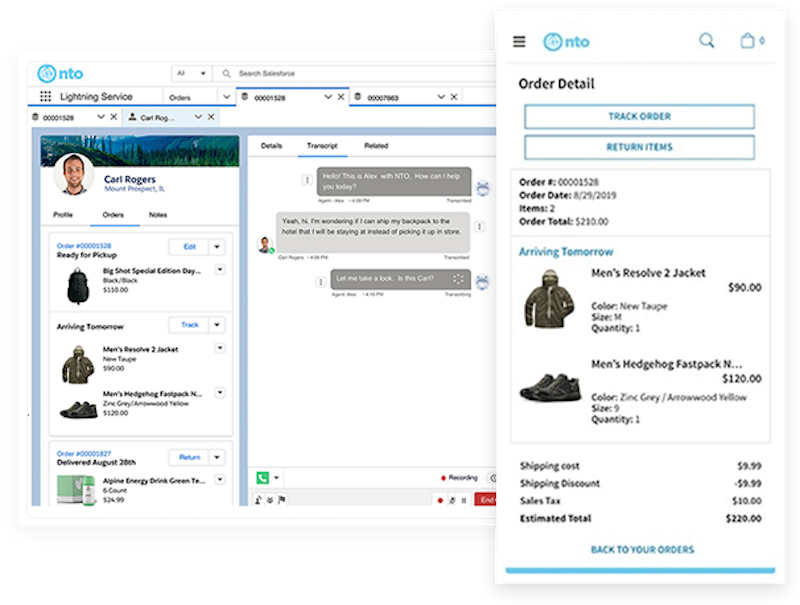Take a look as Unify Data Consultancy reviews ways that CRM deployments can cause damage without the proper structure established.
Why do nearly 65% of all CRM implementations fail?
- Lacking a CRM strategy
- Unorganised objectives
- Scope creep—staying focused on early delivery
- Inadequate executive sponsorship
- Outdated workflows and processes
- Bad data quality
- Meaningful reports & dashboards
- Flawed user adoption
- No actionable outcomes
Stick with us as we explore these nine pitfalls for CRM implementations and how these will lead to a successful rollout.
Lacking CRM Strategy
Without a strategy, you won’t succeed. It doesn’t need to be War and Peace, but it should lay out your end game. What does your North Star look like? It could be something such as: Ensuring that you deliver consistent information at every touchpoint. Increase sales by providing your customers with hyper-personalisation to win more sales.
“As companies in high-touch sectors like finance, law, real estate and consulting undergo digital transformations, they often adopt disparate platforms for every administrative function, forcing clients to manage many portals, passwords and emails. This can lead to communication chaos that degrades the overall client experience,” Forbes.
Outline your strategy and ensure that everything you deliver relates back to your strategy. If it doesn’t, then consider whether you do it at all.
Unorganised Objectives
Before you start any project, you should clearly state your CRM objectives. We recommend a maximum of five (those that fit on one hand) and no fewer than three. If you keep your objectives simple and straightforward, you will likely achieve them.
Make sure your objectives are measurable and that your measurables show the success of your implementation. For example:
Ensure that our CRM is the single source of truth: This means making sure that all your customer data is surfaced in your CRM. To succeed, all of your stakeholders need to be able to see this data and act on it. A quick example is marketing. They need to ensure that they don’t market a discount to someone who has already made that same purchase. Easy you say? It is necessary to ensure that your sales data is timely, with updates to your customer record as soon as that purchase is made.
Scope Creep—Staying Focused On Early Delivery
CRM scope creep occurs when the scope of the project grows and the objectives and budget increase resulting in delays, loss of focus and a threat to customer satisfaction.
Scope creep often occurs when you try to please too many people with new requirements. It’s really important to stay on track and have regular updates where you align users/stakeholders with the original goals and deliverables.
Starting with a clear understanding of the objectives should ensure that the timeline and budget are intact. Organisations need to prepare to regularly monitor all progress and take steps to mitigate any risk and prevent issues that could arise, guiding the objectives and achieving a timely delivery.
Inadequate Executive Sponsorship
CRM implementations often fail because they are not sold to the business as mission-critical. It should be very clear that knowing your customers, providing personalised experiences (at every touchpoint) and having accurate data, will help any business with sticky customers, improve revenue and make working with your customers a joy. Believe us when we say that we have worked with many customer-facing businesses where people feel the customer is an annoyance rather than an asset.
For a CRM to succeed, you really do need exec buy-in. They will help you to drive the messages needed to ensure user adoption and help you roll out standard reporting that helps them to see that the business is delivering to their strategy (and where it’s not, so action can be taken).
Without Executive sponsorship, you are in danger of your CRM implementation being sidelined by small tactical solutions that only solve immediate issues and do nothing to support the long-term strategy of the business.
Outdated Workflows and Processes
A workflow needs to ensure that the flow of data and customer updates is in the correct order. Just don’t inherit old business practice workflows because they are there. Review all workflows and processes (that support your top 5 objectives). Ditch those that are no longer working. Use the CRM implementation as an opportunity to sit with your stakeholders, work through each flow, and ensure you can deliver what they need.
During your workflow, a downstream process will be reliant on the data collected upstream. It could be as simple as making sure you capture a prospective customer’s email address so that marketing can communicate with the customer. Setting correct statuses are crucial to ensure downstream processes perform the correct task based on the information given. Consider the impact of an incorrect status update and its knock-on effect.
Bad Data Quality
Bad data quality, can lead to inaccurate business decisions, lost opportunities, and a misunderstanding of the customer relationship. Without insights into your customer’s behaviour via data, this results in unsatisfactory customer service and missed sales.
A CRM implementation is a great place to review your historical data and make sure you need that data for future business. If not, bin it! Under GDPR and other data privacy rules, it’s important to ensure you only hold customer data that is necessary for you to conduct your business. At the same time, when you are performing a data review, you should think about data retention policies and that will ensure you don’t import out-of-date historical data.
Quality checks are a vital way of ensuring reliable and meticulous data, which includes the data validation phase of auditing and cleansing.
Meaningful Reports & Dashboards
We have seen many system implementations, especially CRM implementations, that appear to be doing what you expected of them yet don’t deliver accurate and meaningful reporting and dashboards. Remember that every dashboard and report you provide has to be accurate. We have spent time proving to stakeholders that the new reports are showing the correct results – they might not like them, but you have to be able to trace back what is being reported – one version of the truth.
Stay clear of falling into the trap of delivering hundreds of reports to suit every individual because “that’s what we used to have”. Reporting is potentially the most challenging deliverable. The results are going to be different to what has gone before. If you have cleaned your data, and have a good set of de-dupe policies in place, then your data reporting will be more accurate. Work with your key stakeholders and help them to understand how a few critical reports adopted business-wide will produce better results and leave nothing to chance.

Flawed User Adoption
Flawed user adoption is one of the main reasons a CRM is not working for a business. Users can feel that their work is being monitored because they do not see any value outcomes and do not understand or have never been told why they are inputting the data the business needs. Once it becomes a form-filling exercise, this impacts user morale, and you end up with poor-quality data with the key fields sometimes not even being used.
It is really important to ensure that all users and stakeholders are on the same page. Show the frontline teams how important accurate customer data is, reward them for collecting it and help them to understand the cross-functional uses for that data which they might not grasp.
User adoption can be improved if the users are trained well, feel they are part of the implementation, and you can show “what’s in it for them”.
No Actionable Outcomes
Data goes in workflows wrong, and little is achieved; as a result, it becomes a form-filling exercise. Everything you do and every data item you collect should serve a business need, and each need should have an actionable outcome. Consider why you are storing data that serves no purpose. Not only does this contravene GDPR, but with a SaaS solution (in fact, any solution), data storage has a cost, and that cost can spiral out of control.
By creating actionable outcomes, you can prove to the business that your implementation is impactful and has a quantifiable result that can be measured and reported.
Preventing Your CRM From Damaging Your Business Implementations
Your CRM can damage your business when the implementation team and vision aren’t suitably managed. This can be avoided with careful planning, scheduling, buy-in, adoption, reporting, and more. We can all agree that a CRM system is an impressive tool for handling customer relationships. Without appropriate structure, this rollout is likely to be a cause of frustration and impair your team from streamlining processes. The last thing your business needs are data silos, inaccurate customer records, and a poor overall view of the customer journey with misleading customer insights for marketing, such as segmentation and targeting. Let Unify Data Consultancy help you plan your CRM implementation using strategic plans and experts on hand.
ABOUT
We are Unify, CRM, Data and Analytics specialists for enterprise-level organisations. We work with companies who have started or are about to start their digital transformation and help customers use their data to drive actionable outcomes and drive business efficiency. Contact us today to find out how we can help your digital transformation programme or to conduct a customised data and operational process audit for your business.

